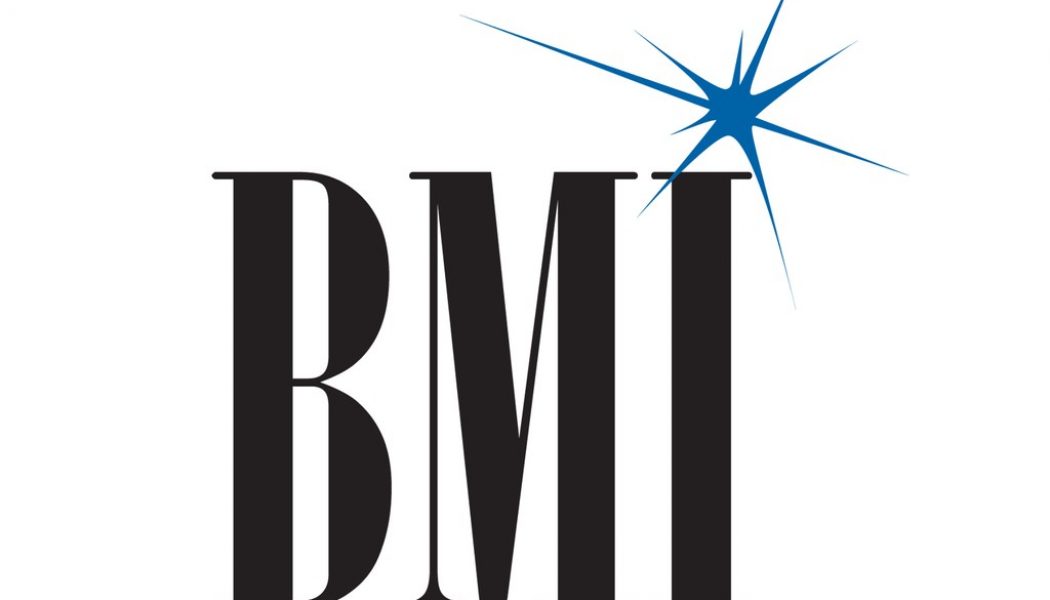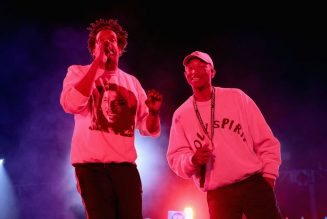
Collections from April to June fell by an estimated $60 million, but a digital boost helped make up the difference.
BMI generated $1.311 billion in revenue in the year ended June 30, 2020, a 2.2% increase over the $1.283 billion it reported in the year earlier period. Distributions were up too, totaling $1.233 billion — a 3.1% increase from the $1.196 billion paid out to songwriters and publishers in the prior fiscal year.
Domestically, the performance rights organization collected $961 million, increasing 1.9% from the year-earlier period. Foreign receipts grew 2.9% to $350 million. As a percentage of revenue, that breaks out to 73.3% domestic and 26.7% foreign, a 0.2% shift in favor of international collections compared to the prior year.
BMI estimates that its fourth quarter revenue collections, from April to June, fell by an estimated $60 million due to COVID-19 pandemic-related economic issues. If BMI had met anticipated collections during that period, revenue would have been up 6.8% from the prior year to $1.371 billion. That percentage would have been more in line with BMI’s historical collections growth percentage in the last few years, raising 7% between the 2019 ($1.283 billion) and 2018 ($1.199 billion) fiscal years and 6.1% between 2018 and 2017 ($1.13 billion).
While BMI and ASCAP have traded top revenue honors for the last few years, this year marks the first time that BMI has maintained the lead. The two PROs measure different time periods, with the BMI year running through June 30 and ASCAP trading on a standard calendar year, allowing for the largest revenue honors to seesaw back and forth. BMI claimed the honor in 2019 and held onto it this year when ASCAP announced $1.274 billion in revenue in May. With its revenue growth for the most recent fiscal year, BMI has fortified that claim.
“During this unprecedented year, our songwriters and composers’ incredible creativity, talent and resilience were beyond compare and truly inspiring,” BMI president and CEO Mike O’Neill said in a statement. “We were thrilled to be able to distribute our highest royalties ever and deliver them earlier than scheduled to help ease the concerns of our creators and publishers during this challenging time. BMI remains committed to supporting our affiliates during this crisis and beyond, and our team continues to work hard every day to protect the profession of songwriting and composing and ensure the ongoing creation of new music.”
The COVID-19 economic downturn was felt in general licensing collections, according to BMI, from concert venues, bars, restaurants, fitness centers and retail — all of which were subject to government closure mandates, in most states and countries, at one time or another over the last six months.
Breaking out domestic revenue by licensing source, general licensing collections totaled $130 million, or a 23.1% decrease from $169 million collected from that sector in the previous fiscal year. However, new media licensing revenue growth offset $32 million of the $39 million in general licensing collections drop as the digital sector licensing revenue grew 16% to $304 million from $262 million.
BMI noted that this is the first time the digital sector represented the largest segment of collections versus other licensing categories. The organization said due to the governmental shelter-in-place mandates BMI saw “strong growth from subscription streaming services that feature TV series, movies and music.” Moreover, BMI added it locked in new digital audiovisual licensing agreements with Disney+, Apple TV+, HBO Max and Peacock this year.
Also picking up the slack from downturn in the general licensing sector was collections from broadcast media, with radio licensing revenue growing 21.1% to $155 million from that sector. That $27 million increase (up from $128 million) was attributed to the BMI rate court settlement with the Radio Music Licensing Committee that resulted in a new agreement and retroactive payments. Television revenue was flat at about $101 million, while cable and satellite revenue fell 4.6% to $271 million from $284 million in the prior year.
As a percentage of domestic revenue, that breaks out to all broadcast media accounting for 54.8% of revenue for the just finished year versus 54.4% last year; digital or so-called “new media” at 31.6% for 2020 versus 27.8% in 2019; and general licensing at 13.5% of revenue against 17.9% in 2019.
BMI also noted that its administration for direct licensing deals between publishers and licensees totaled $71 million, accounting for 5.8% of total distributions. That’s a 14.5% increase over the prior year total of $62 million.
BMI claimed it now handles licensing for more than 17 million works, up from the 15 million songs in 2019, while noting it processed 2 trillion transactions during the year. It reported that nearly 100,000 new songwriters, composers and publishers joined BMI in the last year, highlighting new signings from Chance the Rapper, H.E.R., Tame Impala, Dave Mustaine of Megadeth, Succession composer Nicholas Britell, Juan Salinas and Oscar Salinas of Play-N-Skillz and the late Pop Smoke. It also extended agreements with Ellie Goulding, Elton John, Khalid, Marshmello, Willie Nelson, Ozuna, Horacio Palencia, Mike Post, Lil Wayne, John Williams and BeBe Winans, among others.










